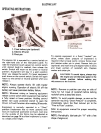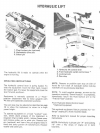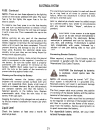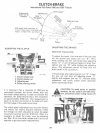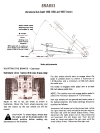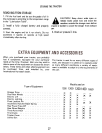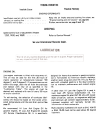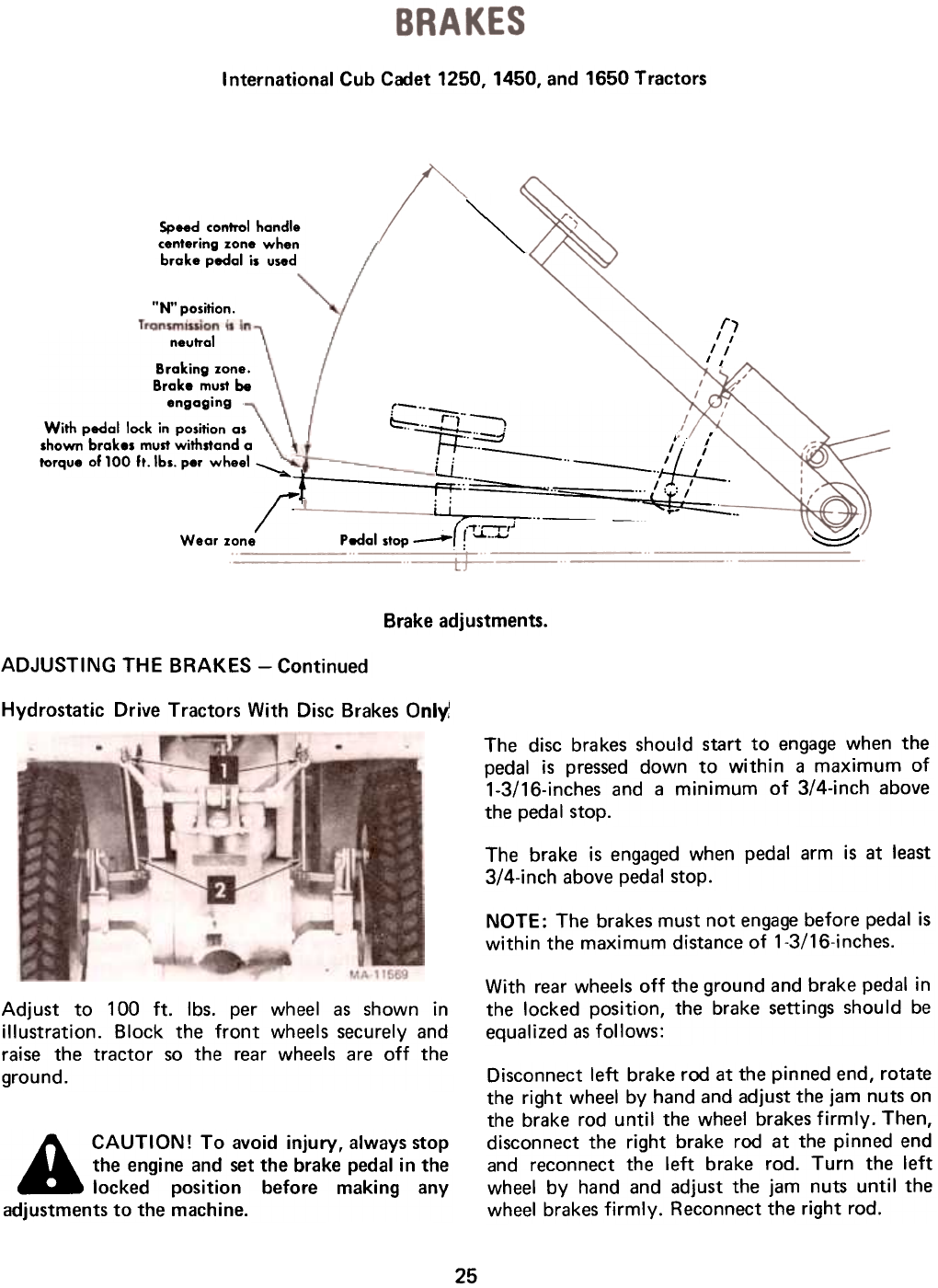
International Cub CCKJet 1250, 1450, and 1650 Tractors
""
""
Speed control handle
centering zone when
brake pedal is used
""
"N" position.
r)
I I
I /
I I
neutral
Braking zone.
Brake must be
engaging
With pedal lock in position as
shown brakes must withstand a
torque of 100 fl.lbs. per wheel ~
I
I
,-..
: -
~.o ".0
1..-
o~ '
-r:::r:::-::.::::::i
rt-°. '0
--~.. --00-- I/o,i~
+ ~~: ~o= .°ft-;L-.
~ ~ -;T - -=::;:=:=-::=:=:::':':~~:.=:.' 0 , 0 0
, ' , I
L I -o~ o-
r o. ..- °"T°r--rr" .
Pedal stop -, r ;..L .
~
Wear zone
Brake adjustments.
ADJUSTING THE BRAKES -Continued
Hydrostatic Drive Tractors With Disc Brakes Only
The disc brakes should start to engage when the
pedal is pressed down to within a maximum of
1-3/16-inches and a minimum of 3/4-inch above
the pedal stop.
The brake is engaged when pedal arm is at least
3/4-inch above pedal stop.
NOTE: The brakes must not engage before pedal is
within the maximum distance of 1-3/16-inches.
With rear wheels off the ground and brake pedal in
the locked position, the brake settings should be
equalized as follows:
Adjust to 100 ft. Ibs. per wheel as shown in
illustration. Block the front wheels securely and
raise the tractor so the rear wheels are off theground.
Disconnect left brake rod at the pinned end, rotate
the right wheel by hand and adjust the jam nuts on
the brake rod until the wheel brakes firmly. Then,
disconnect the right brake rod at the pinned end
and reconnect the left brake rod. Turn the left
wheel by hand and adjust the jam nuts until the
wheel brakes firmly. Reconnect the right rod.
A CAUTION! To avoid injury, always stop
the engine and set the brake pedal in the
locked position before making any
adjustments to the machine.
25



